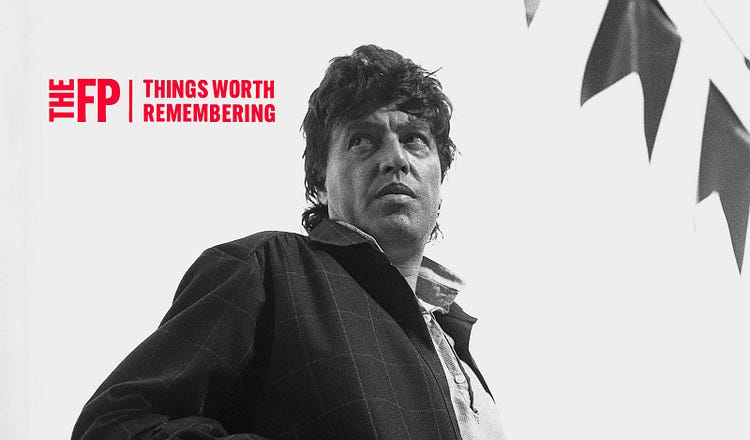
Welcome to Douglas Murray’s column “Things Worth Remembering,” in which he presents great speeches that we should commit to heart. Scroll down to listen to Douglas discuss his favorite passage from Arcadia, Tom Stoppard’s 1993 play.
There will be a surfeit of politics in the coming months, so I want to take this opportunity to steer the series toward other matters. So far, I have focused on speeches that people have actually given; from Demosthenes to James Baldwin, we have examined how the art of oratory works in the real world. But before we go any further, I would like to briefly pivot to the other great realm of speechmaking: the theater.
Sometimes, the two worlds—politics and the stage—are so close that you could almost confuse one for the other. Last May, I wrote about Queen Elizabeth I’s speech at Tilbury. If someone didn’t know its origin, a reasonable person might guess upon hearing the speech that it was written by Shakespeare. The Queen’s rhetoric would not have been out of place in one of his history plays, all of them biographies of English monarchs. Which raises the question of who was influencing who in those great years of the English language.
Even nowadays, most of us have speeches from plays and films jangling around our heads, alongside things that have actually been said. Both contribute to what Michael Oakeshott called “the voice of poetry in the conversation of mankind.” Whether in verse or prose, there are some fictional speeches that, once heard, cannot be unheard. You find that you live with them.
When I think of the fictional speeches that have stuck in my own mind, I am reminded of a play that I would dearly love to see again, the masterpiece of one of our great modern playwrights, Sir Tom Stoppard.


